The Power of Protein: Why It's Essential for Your Body and Health
Did you know that every single cell in your body relies on a mighty nutrient to carry out its daily functions? It's called protein, and it's the unsung hero behind your body's remarkable capabilities. From building and repairing tissues to regulating hormones and supporting a robust immune system, protein plays a pivotal role in every aspect of your health.
When it comes to a healthy and balanced diet, protein takes center stage as one of the most crucial macronutrients. Unlike fats and carbohydrates, which provide energy, protein provides the building blocks necessary for the growth, maintenance, and repair of body tissues. It's the backbone that keeps your muscles strong, your organs functioning optimally, and your overall body composition in check.
Amino acids, the building blocks of proteins, are small compounds that contain carbon, hydrogen, oxygen, and nitrogen atoms. There are 20 different amino acids that can be arranged in various combinations to form a wide array of proteins. Each amino acid has a unique side chain that distinguishes it from others, and this side chain dictates the amino acid's characteristics and interactions within the protein structure.
Amino acids can be categorized into two main groups: essential amino acids and non-essential amino acids. Essential amino acids cannot be synthesized by the body and must be obtained from dietary sources. They include amino acids such as:
On the other hand, non-essential amino acids can be produced by the body itself. They include amino acids such as:

The Functions of Protein in the Body
Protein, as a crucial macronutrient, serves a multitude of functions in the human body. Its intricate structure and diverse composition make it indispensable for various physiological processes that contribute to overall health and well-being.
When it comes to a healthy and balanced diet, protein takes center stage as one of the most crucial macronutrients. Unlike fats and carbohydrates, which provide energy, protein provides the building blocks necessary for the growth, maintenance, and repair of body tissues. It's the backbone that keeps your muscles strong, your organs functioning optimally, and your overall body composition in check.
With this understanding in mind, let's embark on a journey to explore the incredible power of protein and uncover why it's absolutely essential for your body and overall health.
Protein stands alongside carbohydrates and fats as one of the three macronutrients required in substantial amounts for a balanced diet. While carbohydrates and fats primarily serve as energy sources, protein serves as the essential building material for your body. It provides the necessary raw materials for growth, repair, and maintenance of tissues, including muscles, organs, skin, hair, and nails.
Amino acids can be categorized into two main groups: essential amino acids and non-essential amino acids. Essential amino acids cannot be synthesized by the body and must be obtained from dietary sources. They include amino acids such as:
- Leucine
- Valine
- Isoleucine
- Lysine
- Methionine
- Phenylalanine
- Threonine
- Tryptophan
- Histidine
On the other hand, non-essential amino acids can be produced by the body itself. They include amino acids such as:
- Alanine
- Asparagine
- Aspartic acid
- Glutamic acid
- Glycine
- Proline
- Serine
The Functions of Protein in the Body
Protein, as a crucial macronutrient, serves a multitude of functions in the human body. Its intricate structure and diverse composition make it indispensable for various physiological processes that contribute to overall health and well-being.
Muscle Growth and Repair
Protein plays a vital role in muscle growth and repair. During physical activity, especially resistance exercise, muscle tissues undergo microscopic damage. Protein provides the necessary amino acids to repair and rebuild these tissues, leading to muscle growth and enhanced strength. Research studies have shown that consuming an adequate amount of high-quality protein after exercise can optimize muscle protein synthesis and facilitate recovery. For example, a study published in the Journal of the International Society of Sports Nutrition demonstrated that post-exercise protein ingestion resulted in increased muscle protein synthesis and improved muscle performance.
Cell Structure and Function
Proteins are essential for the structure and functioning of cells. They are like the building blocks that make up the walls and machinery of cells. Just as bricks are used to construct a house, proteins form the foundation of cells. They help maintain the shape and integrity of cells and their various parts.
Proteins also have important jobs inside cells. They act as messengers, carrying signals that tell cells what to do. They help transport molecules in and out of cells, allowing the cells to communicate with their surroundings. Proteins are also involved in many chemical reactions happening inside cells, acting as catalysts that speed up these reactions. In a way, proteins are like the workers inside cells, ensuring everything runs smoothly.
For example, proteins called enzymes help break down food into smaller molecules that can be used by the body. Other proteins act as pumps, helping move substances across cell membranes. Proteins are also responsible for recognizing and binding to specific molecules, allowing cells to interact with their environment.
Hormone Production and Regulation
Certain proteins serve as hormones or participate in hormone production and regulation. Hormones are chemical messengers that coordinate and control numerous bodily functions. For example, insulin, a protein hormone produced by the pancreas, regulates blood sugar levels. Growth hormone, secreted by the pituitary gland, plays a key role in growth, development, and metabolism. Hormones like these help maintain physiological balance, and their proper functioning relies on adequate protein availability.
Immune System Support
Proteins contribute to a robust immune system and play a crucial role in defending the body against infections and diseases. Antibodies, also known as immunoglobulins, are specialized proteins produced by the immune system to recognize and neutralize harmful pathogens. Additionally, certain proteins called cytokines regulate immune responses, inflammation, and immune cell communication. Studies have shown that protein malnutrition can compromise immune function, making individuals more susceptible to infections. A review published in the journal Nutrients emphasized the importance of dietary protein in supporting immune system function and overall health.
Nutrient Transport and Storage
Proteins facilitate the transport and storage of vital nutrients throughout the body. For example, lipoproteins transport cholesterol and other lipids in the bloodstream, ensuring their proper distribution to cells. Additionally, proteins like ferritin store and release iron, an essential mineral involved in various physiological processes. These protein-mediated mechanisms ensure that nutrients are efficiently transported and available when needed.
By understanding the multifaceted functions of protein in the body, we can appreciate its crucial role in supporting overall health and optimal bodily functions. In the next section, we'll explore dietary sources of protein and discuss how to incorporate adequate amounts of protein into your daily diet for optimal well-being.
Protein Requirements and Sources
To ensure that your body receives an adequate amount of protein, it's essential to understand the recommended protein intake, the quality of protein, and the variety of sources available.
Recommended Daily Protein Intake
The recommended daily protein intake varies depending on factors such as age, sex, activity level, and overall health. The Recommended Dietary Allowance (RDA) suggests that adults should aim for 0.8 grams of protein per kilogram of body weight. However, certain individuals, such as athletes, older adults, and those recovering from illness or injury, may require higher protein intakes. It's important to consult with a healthcare professional or registered dietitian to determine your specific protein needs based on your circumstances.
Protein plays a vital role in muscle growth and repair. During physical activity, especially resistance exercise, muscle tissues undergo microscopic damage. Protein provides the necessary amino acids to repair and rebuild these tissues, leading to muscle growth and enhanced strength. Research studies have shown that consuming an adequate amount of high-quality protein after exercise can optimize muscle protein synthesis and facilitate recovery. For example, a study published in the Journal of the International Society of Sports Nutrition demonstrated that post-exercise protein ingestion resulted in increased muscle protein synthesis and improved muscle performance.
Cell Structure and Function
Proteins are essential for the structure and functioning of cells. They are like the building blocks that make up the walls and machinery of cells. Just as bricks are used to construct a house, proteins form the foundation of cells. They help maintain the shape and integrity of cells and their various parts.
Proteins also have important jobs inside cells. They act as messengers, carrying signals that tell cells what to do. They help transport molecules in and out of cells, allowing the cells to communicate with their surroundings. Proteins are also involved in many chemical reactions happening inside cells, acting as catalysts that speed up these reactions. In a way, proteins are like the workers inside cells, ensuring everything runs smoothly.
For example, proteins called enzymes help break down food into smaller molecules that can be used by the body. Other proteins act as pumps, helping move substances across cell membranes. Proteins are also responsible for recognizing and binding to specific molecules, allowing cells to interact with their environment.
Hormone Production and Regulation
Certain proteins serve as hormones or participate in hormone production and regulation. Hormones are chemical messengers that coordinate and control numerous bodily functions. For example, insulin, a protein hormone produced by the pancreas, regulates blood sugar levels. Growth hormone, secreted by the pituitary gland, plays a key role in growth, development, and metabolism. Hormones like these help maintain physiological balance, and their proper functioning relies on adequate protein availability.
Immune System Support
Proteins contribute to a robust immune system and play a crucial role in defending the body against infections and diseases. Antibodies, also known as immunoglobulins, are specialized proteins produced by the immune system to recognize and neutralize harmful pathogens. Additionally, certain proteins called cytokines regulate immune responses, inflammation, and immune cell communication. Studies have shown that protein malnutrition can compromise immune function, making individuals more susceptible to infections. A review published in the journal Nutrients emphasized the importance of dietary protein in supporting immune system function and overall health.
Nutrient Transport and Storage
Proteins facilitate the transport and storage of vital nutrients throughout the body. For example, lipoproteins transport cholesterol and other lipids in the bloodstream, ensuring their proper distribution to cells. Additionally, proteins like ferritin store and release iron, an essential mineral involved in various physiological processes. These protein-mediated mechanisms ensure that nutrients are efficiently transported and available when needed.
By understanding the multifaceted functions of protein in the body, we can appreciate its crucial role in supporting overall health and optimal bodily functions. In the next section, we'll explore dietary sources of protein and discuss how to incorporate adequate amounts of protein into your daily diet for optimal well-being.
Protein Requirements and Sources
To ensure that your body receives an adequate amount of protein, it's essential to understand the recommended protein intake, the quality of protein, and the variety of sources available.
Recommended Daily Protein Intake
The recommended daily protein intake varies depending on factors such as age, sex, activity level, and overall health. The Recommended Dietary Allowance (RDA) suggests that adults should aim for 0.8 grams of protein per kilogram of body weight. However, certain individuals, such as athletes, older adults, and those recovering from illness or injury, may require higher protein intakes. It's important to consult with a healthcare professional or registered dietitian to determine your specific protein needs based on your circumstances.
Quality of Protein and Essential Amino Acids
Protein quality refers to how well a protein source provides the essential amino acids required by the body. Essential amino acids are the building blocks of protein that cannot be produced by the body and must be obtained through the diet. Animal-based protein sources, such as meat, fish, eggs, and dairy products, are considered high-quality proteins as they contain all the essential amino acids in the right proportions. However, plant-based proteins, while they may lack one or more essential amino acids, can still provide adequate protein when combined with other complementary protein sources. By consuming a varied diet that includes a range of protein sources, it's possible to obtain all the essential amino acids necessary for optimal health.
Protein quality refers to how well a protein source provides the essential amino acids required by the body. Essential amino acids are the building blocks of protein that cannot be produced by the body and must be obtained through the diet. Animal-based protein sources, such as meat, fish, eggs, and dairy products, are considered high-quality proteins as they contain all the essential amino acids in the right proportions. However, plant-based proteins, while they may lack one or more essential amino acids, can still provide adequate protein when combined with other complementary protein sources. By consuming a varied diet that includes a range of protein sources, it's possible to obtain all the essential amino acids necessary for optimal health.
Examples of Protein-Rich Foods
Both animal and plant sources offer ample options for meeting your protein requirements. Here are some examples of protein-rich foods from both categories:
Animal Sources:
Incorporating a combination of animal and plant protein sources into your diet can provide a wide range of nutrients and help meet your protein needs. The key is to focus on consuming a variety of protein-rich foods to ensure a well-rounded intake of essential amino acids and other important nutrients.
Opt for lean protein sources to minimize saturated fats and cholesterol. Lean cuts of meat, skinless poultry, fish, and low-fat dairy products are excellent choices. For plant-based options, opt for beans, lentils, quinoa, and soy products like tempeh or edamame.
Emphasize Whole Foods
Focus on whole, minimally processed foods rather than heavily processed protein products. Whole foods not only provide protein but also offer a variety of other nutrients. Include whole grains, fruits, vegetables, and nuts alongside your protein sources to create balanced meals.
To ensure you receive a wide range of nutrients, vary your protein sources. Don't rely solely on one type of protein. Experiment with different animal and plant sources to add variety to your meals and to obtain a spectrum of essential amino acids.
Balance Macronutrients
Remember that protein is just one of the three macronutrients, alongside carbohydrates and fats. Strive for a balanced meal by including carbohydrates from whole grains, fruits, and vegetables, and healthy fats from sources like nuts, seeds, and avocado. This balance will provide your body with a well-rounded nutritional profile.
Be Mindful of Portions
While protein is important, it's crucial to maintain portion control. Be aware of the appropriate serving sizes for your protein sources. Consult nutrition labels or use a food scale to measure quantities accurately. Overconsumption of protein can lead to an imbalance in your overall diet.
Timing of Protein Intake
Distribute your protein intake throughout the day rather than consuming it all in one meal. This approach allows for optimal protein absorption and utilization by the body. Aim to have a source of protein with each meal and snack to support steady muscle repair and growth.
By implementing these practical tips, you can ensure that you're getting an adequate and balanced amount of protein in your daily meals, supporting your overall health and well-being.
In conclusion, protein plays a vital role in our body's overall function and is essential for maintaining good health. It serves as a building block for muscles, supports cell structure and function, aids in hormone production and regulation, boosts the immune system, and facilitates nutrient transport and storage. Understanding the importance of protein and making informed choices about protein consumption can have a significant impact on our well-being.
Remember that protein is not just about quantity but also quality. While meeting our daily protein requirements is important, it is equally crucial to focus on consuming high-quality protein sources that provide all the essential amino acids our body needs. By incorporating a variety of animal and plant protein sources into our diet, we can ensure a diverse nutrient intake and support optimal health.
So, let's harness the power of protein to nourish our bodies, support our well-being, and thrive in all aspects of life.
Both animal and plant sources offer ample options for meeting your protein requirements. Here are some examples of protein-rich foods from both categories:
Animal Sources:
- Lean meats (such as chicken, turkey, beef, and pork)
- Fish and seafood (such as salmon, tuna, shrimp, and cod)
- Eggs
- Dairy products (such as milk, yogurt, cheese, and cottage cheese)
- Legumes (such as beans, lentils, chickpeas, and soybeans)
- Nuts and seeds (such as almonds, walnuts, chia seeds, and flaxseeds)
- Quinoa and other whole grains
- Tofu and tempeh
- Plant-based milk alternatives (such as soy milk and almond milk)
Incorporating a combination of animal and plant protein sources into your diet can provide a wide range of nutrients and help meet your protein needs. The key is to focus on consuming a variety of protein-rich foods to ensure a well-rounded intake of essential amino acids and other important nutrients.
Practical Tips for Optimizing Protein Intake in Daily Meals
Now that we understand the importance of protein and know where to find it, let's explore some practical tips to help you optimize your protein intake in your daily meals:
Prioritize Protein at Each Meal
Make it a habit to include a good source of protein in every meal. Whether it's breakfast, lunch, or dinner, incorporating protein-rich foods will help you meet your daily protein requirements. Consider options like eggs, Greek yogurt, chicken breast, tofu, or legumes to add protein to your meals.
Now that we understand the importance of protein and know where to find it, let's explore some practical tips to help you optimize your protein intake in your daily meals:
Prioritize Protein at Each Meal
Make it a habit to include a good source of protein in every meal. Whether it's breakfast, lunch, or dinner, incorporating protein-rich foods will help you meet your daily protein requirements. Consider options like eggs, Greek yogurt, chicken breast, tofu, or legumes to add protein to your meals.
Choose Lean Protein Sources
Opt for lean protein sources to minimize saturated fats and cholesterol. Lean cuts of meat, skinless poultry, fish, and low-fat dairy products are excellent choices. For plant-based options, opt for beans, lentils, quinoa, and soy products like tempeh or edamame.
Emphasize Whole Foods
Focus on whole, minimally processed foods rather than heavily processed protein products. Whole foods not only provide protein but also offer a variety of other nutrients. Include whole grains, fruits, vegetables, and nuts alongside your protein sources to create balanced meals.
Incorporate Variety
To ensure you receive a wide range of nutrients, vary your protein sources. Don't rely solely on one type of protein. Experiment with different animal and plant sources to add variety to your meals and to obtain a spectrum of essential amino acids.
Balance Macronutrients
Remember that protein is just one of the three macronutrients, alongside carbohydrates and fats. Strive for a balanced meal by including carbohydrates from whole grains, fruits, and vegetables, and healthy fats from sources like nuts, seeds, and avocado. This balance will provide your body with a well-rounded nutritional profile.
Be Mindful of Portions
While protein is important, it's crucial to maintain portion control. Be aware of the appropriate serving sizes for your protein sources. Consult nutrition labels or use a food scale to measure quantities accurately. Overconsumption of protein can lead to an imbalance in your overall diet.
Timing of Protein Intake
Distribute your protein intake throughout the day rather than consuming it all in one meal. This approach allows for optimal protein absorption and utilization by the body. Aim to have a source of protein with each meal and snack to support steady muscle repair and growth.
Seek Professional Guidance
If you have specific dietary needs, health concerns, or fitness goals, it's advisable to consult a registered dietitian or nutritionist. They can provide personalized recommendations and guide you in optimizing your protein intake based on your unique requirements.
If you have specific dietary needs, health concerns, or fitness goals, it's advisable to consult a registered dietitian or nutritionist. They can provide personalized recommendations and guide you in optimizing your protein intake based on your unique requirements.
By implementing these practical tips, you can ensure that you're getting an adequate and balanced amount of protein in your daily meals, supporting your overall health and well-being.
In conclusion, protein plays a vital role in our body's overall function and is essential for maintaining good health. It serves as a building block for muscles, supports cell structure and function, aids in hormone production and regulation, boosts the immune system, and facilitates nutrient transport and storage. Understanding the importance of protein and making informed choices about protein consumption can have a significant impact on our well-being.
Remember that protein is not just about quantity but also quality. While meeting our daily protein requirements is important, it is equally crucial to focus on consuming high-quality protein sources that provide all the essential amino acids our body needs. By incorporating a variety of animal and plant protein sources into our diet, we can ensure a diverse nutrient intake and support optimal health.
So, let's harness the power of protein to nourish our bodies, support our well-being, and thrive in all aspects of life.

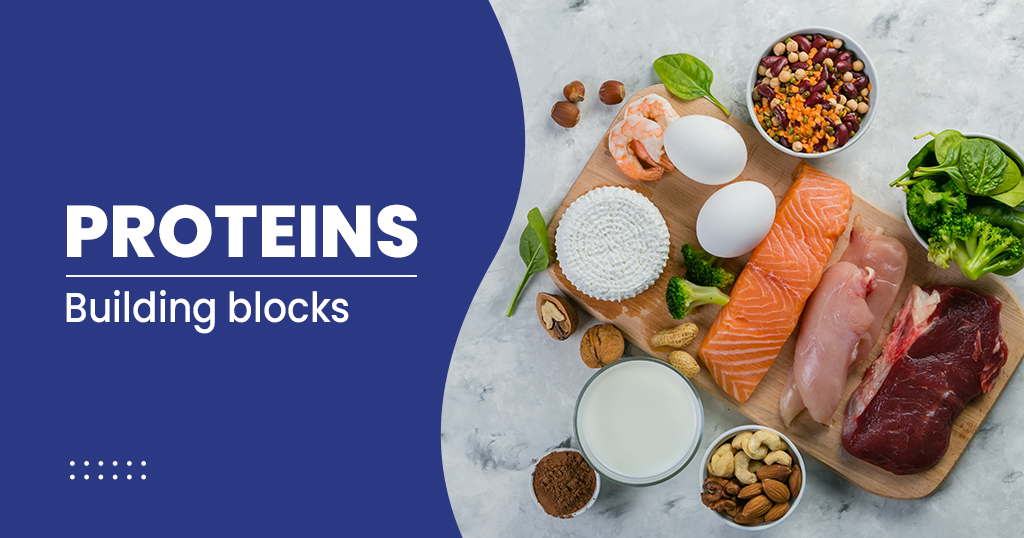
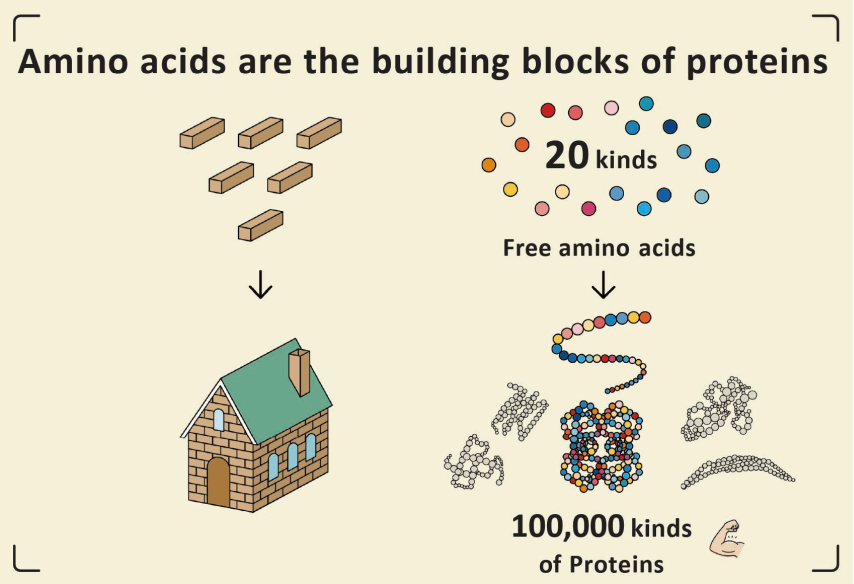
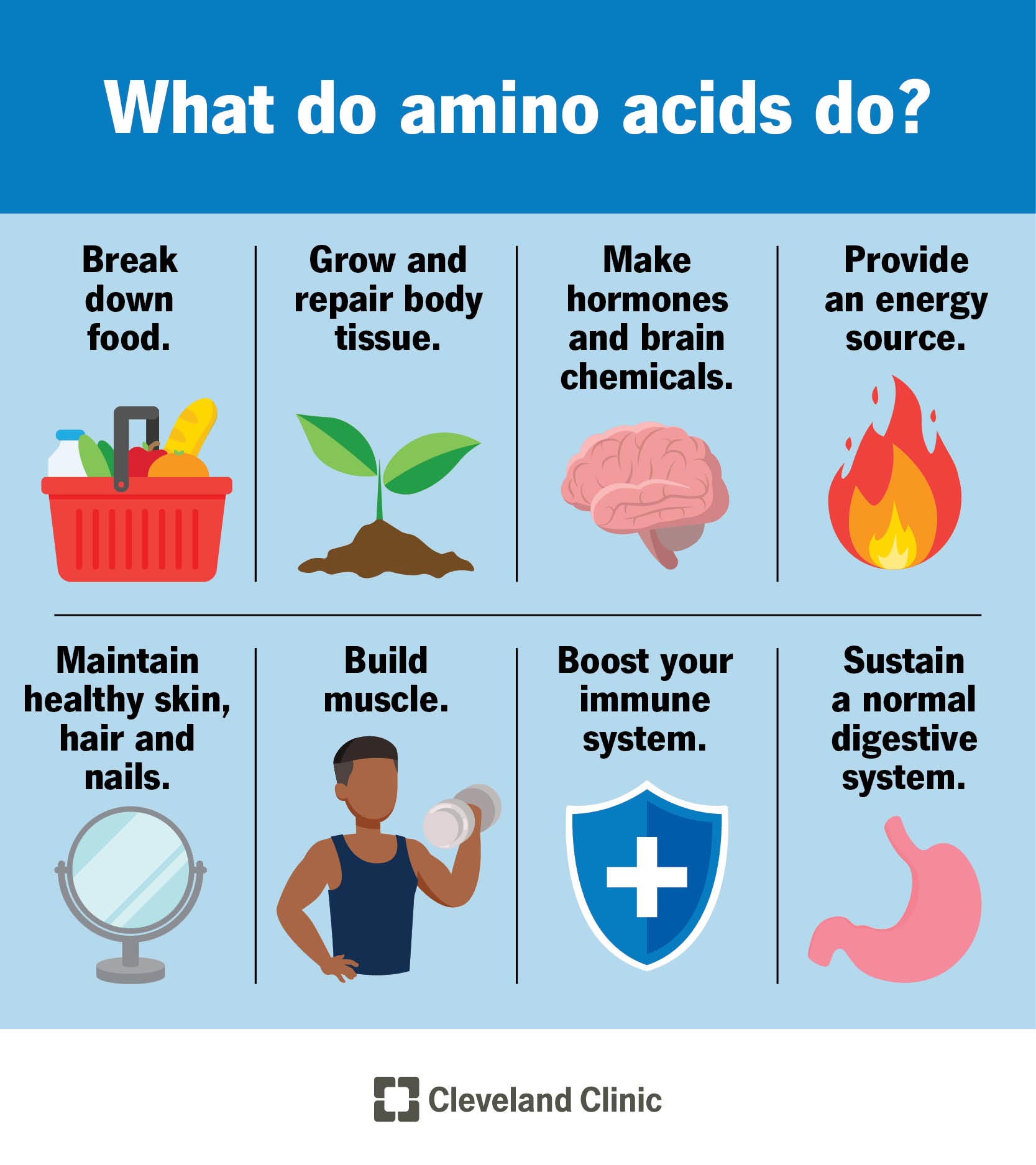

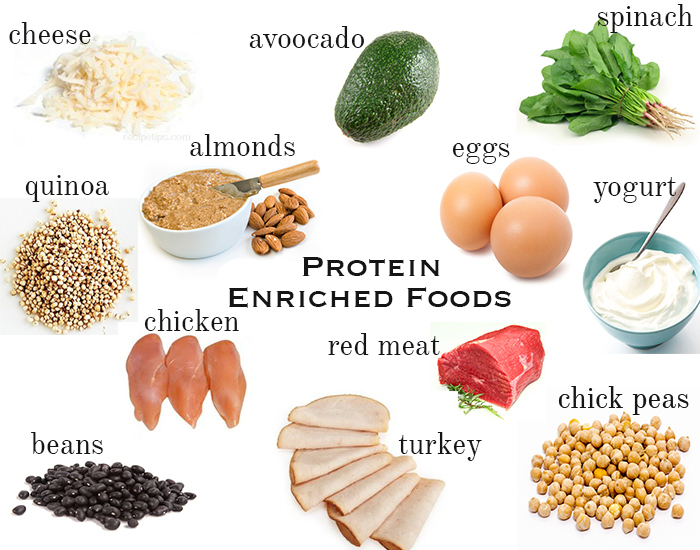


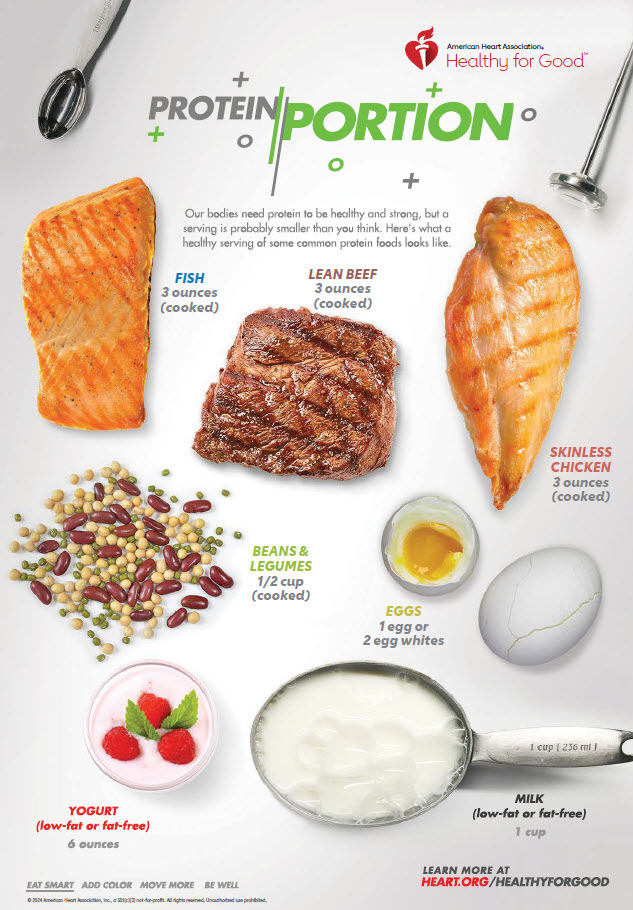




Comments
Post a Comment